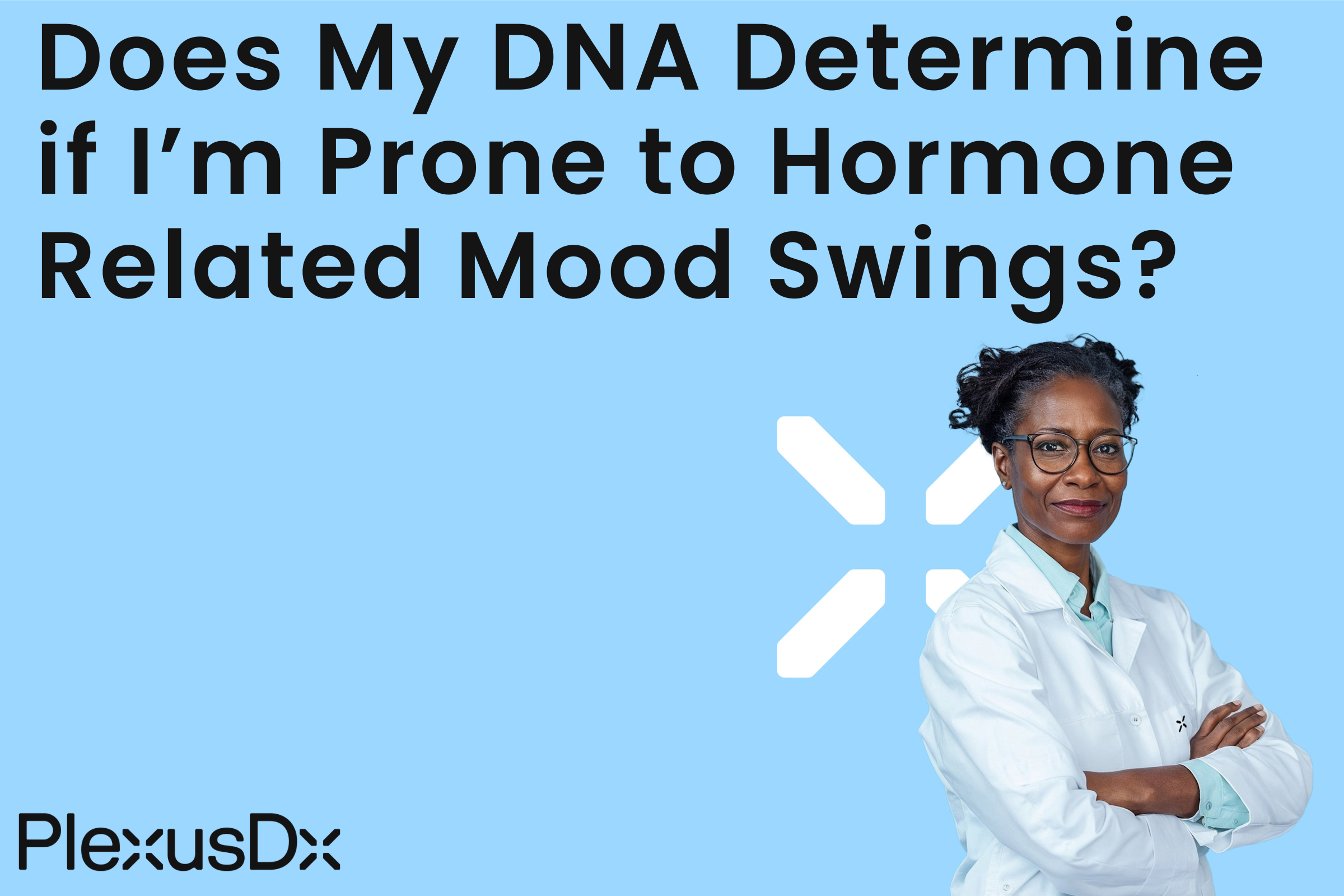Are Genetic Factors Responsible for Making Me Susceptible to Mood Changes Triggered by Hormones?
Have you ever noticed that you feel extremely upbeat one day and then the smallest things can send you into a downward spiral the next? You share your experience of hormone-related mood swings with many others. Many people grapple with these emotional fluctuations, and the question arises: Is DNA responsible for hormone-related mood fluctuations? Our blog post examines how genetic factors interact with hormonal influences on mood swings and explains how knowledge of this connection enables you to manage your emotional health better.
The Genetic Connection to Mood Swings
Understanding the influence of DNA on hormone-related mood swings requires knowledge of how hormones interact with genetic factors. The hormones estrogen, progesterone, and testosterone play a crucial role in regulating mood and emotion. Genetic differences determine the way your body generates and reacts to these hormones according to research studies. Genetic linkages exist between specific genes and estrogen metabolism which has the potential to affect mood stability.
Genetic predispositions have significant effects on brain neurotransmitter systems including serotonin and dopamine which play vital roles in mood regulation. Your genetic background might enhance your risk of hormone-induced mood fluctuations if mood disorders run in your family. Your genetic code does not determine your future outcomes but establishes a structure which interacts with environmental conditions and personal lifestyle decisions along with individual life experiences.
Understanding Hormonal Fluctuations
Throughout life certain hormonal changes occur naturally which become especially apparent during puberty and the menstruation cycle as well as pregnancy and menopause. The alterations produce emotional fluctuations and increased irritability while leading to emotional unsteadiness. The drop in estrogen and progesterone levels causes significant mood changes in many women who experience premenstrual syndrome (PMS). Learning about the triggers and timing of hormonal changes enables better emotional response management.
Stress acts as a catalyst for hormonal imbalance which then results in more intense mood variations. Stress triggers cortisol production in your body which disrupts other hormone balances. The relationship between stress hormones and their effects demonstrates why emotional health should be approached holistically through both genetic and lifestyle perspectives.
Practical Advice for Managing Mood Swings
Although your genetic makeup determines how likely you are to experience hormone-related mood swings there exist multiple steps you can take to improve your emotional health.
-
Track Your Cycle
Knowing your hormonal cycle empowers you to predict and manage mood swings. Monitoring your emotions and hormonal shifts during each month through journaling will help you track your energy levels and mood changes. With this awareness you can better prepare for difficult days by implementing coping strategies. -
Prioritize Nutrition
The food you consume significantly influences your hormonal balance. Eating salmon and walnuts that contain omega-3 fatty acids helps maintain mood stability. Include foods that contain plenty of fiber and antioxidants such as fruits and vegetables to help maintain hormonal balance. -
Exercise Regularly
Physical activity functions as an effective method for mood stabilization. Physical activity causes your body to release endorphins that enhance your mood while also lowering stress levels. Strive to perform moderate exercise sessions that last 30 minutes on most days every week. Discover an activity that brings you joy whether it involves brisk walking, practicing yoga, or dancing. -
Practice Mindfulness and Stress Reduction
Mindfulness techniques like meditation and deep-breathing exercises can help you control stress and emotional changes. These techniques improve your understanding of your mental and emotional states which helps you handle mood swings better. -
Seek Professional Guidance
When mood swings disrupt your daily life, seek advice from a healthcare professional. Healthcare providers can assist you in identifying hormonal imbalances and suggest corresponding treatment options. While your genetic predispositions can provide useful information in this process it remains vital to consult with a professional who can develop personalized solutions.
Conclusion
Although your DNA influences your vulnerability to hormone-driven mood swings there are additional factors involved. You can actively manage your emotional health by exploring how genetics work together with hormonal activity and personal lifestyle behaviors. Use PlexusDx Precision Health & Wellness tests to discover how your genetic profile influences your health. PlexusDx Precision Health & Wellness tests can be purchased through PlexusDx.com as well as on Amazon and Walmart. You will find your path to emotional balance through personalized methods and with proper support you can confidently face life's highs and lows.
Where to Buy PlexusDx Genetic Tests
Ready to take control of your health with precision genetic insights? You can purchase the PlexusDx Hormone and Reproductive Health Genetic Test from these trusted retailers:
- 👉 PlexusDx – Order directly from our official website.
- 👉 Amazon – Convenient shopping with fast shipping.
- 👉 Walmart – Buy online from a trusted retailer.
Get your personalized DNA insights today and start optimizing your health! 🚀

Share:
Does My DNA Test Show if I Have a Gluten Sensitivity?
How Do my Genes Impact my Ability to Burn Fat?